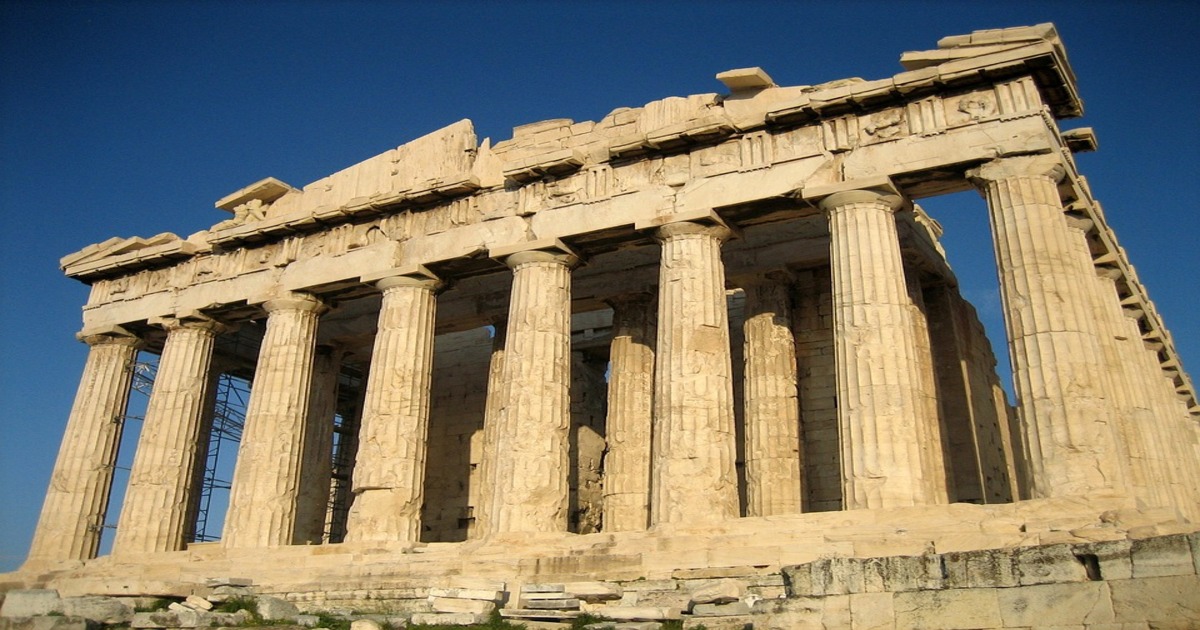What Kind of Government Did Athens Have: Unraveling the Democracy of Ancient Greece

Athens had a direct democracy form of government, where every citizen had political power and participated in decision-making. In Ancient Athens, women had limited political rights and were controlled by men, unable to own property or have access to money.
Athenian democracy was the first-known democracy in the world and had a significant influence on the Roman government. The stability provided by this new form of government allowed Athens to thrive during its golden age in the fifth century BC.
Athenian democracy required citizen participation, with punishment for those who did not participate. This type of government had a lasting impact on modern democratic systems, shaping the way politicians and governments operate today.
The Origins Of Athenian Democracy
What kind of government did Athens have? Athens is famous for its form of government known as Athenian democracy, which was one of the earliest known democracies in the world. The origins of Athenian democracy can be traced back to ancient Greece, where the citizens had real political power. In this type of government, the people, or “demos,” were required to participate or face punishment.
Athenian democracy had a direct democratic structure, meaning that the citizens themselves made decisions and voted on various issues. Unlike modern democratic governments, Athenians did not pay taxes, and the money for government payments came from public funds.
However, it is important to note that not all individuals were considered citizens in Athens. Certain groups were excluded from Athenian citizenship, such as women who had virtually no political rights and were controlled by men. Athenian women could not own property or access money.
Athenian democracy had a significant influence on the Roman government and other ancient civilizations. It is worth exploring the evolution of government in ancient Athens to understand the development and impact of this unique form of governance.
The Structure Of Athenian Democracy
Athenian democracy was a direct form of government where every citizen had real political power. Unlike modern democratic governments, in ancient Athens, every citizen was required to participate or face punishment. This practice greatly influenced politicians and governments ever since.
| The Structure of Athenian Democracy |
| The main bodies of government in Athens: |
| – The Ecclesia: This was the assembly of all Athenian citizens and the highest decision-making body. They voted on laws and could propose new ones. |
| – The Boule: Also known as the Council of Five Hundred, this body was responsible for preparing the agenda for the Ecclesia and overseeing daily governance. |
| – The Courts: Athens had a system of courts where citizens could bring cases and serve as jurors. These courts were important for maintaining justice and enforcing laws. |
| – The Archons: These were the nine elected officials who held various administrative and judicial roles in Athens. |
| – The Strategoi: The military was an integral part of Athenian democracy, and the Strategoi were the ten elected military commanders. |
| The power and role of the citizens: |
| In Athenian democracy, all citizens had the right to participate in decision-making and hold public office. They could vote on laws, propose legislation, and serve on juries. This direct involvement of the citizens in governance was a key feature of the Athenian political system. However, it’s important to note that not all residents of Athens were considered citizens. Women, slaves, and foreigners were excluded from citizenship and did not have political rights. |
Participation And Exclusion In Athenian Democracy
Athenian Democracy in Ancient Athens was a form of government where every citizen was required to participate or face consequences. This direct democracy allowed the people, or ‘demos’, to hold real political power. However, women and certain groups were excluded from Athenian citizenship.
| Participation and Exclusion in Athenian Democracy |
| The requirements for Athenian citizenship |
Conclusion: The Democracy Of Ancient Athens
Athens had a unique form of government known as direct democracy. Every citizen, excluding women, slaves, and foreigners, had the right to participate in the decision-making process. This system provided the citizens of Athens with real political power, making it the first known democracy in the world.
| Conclusion: The Democracy of Ancient Athens |
| Impact and influence of Athenian democracy |
|
Legacy of Athenian democratic ideals The government of ancient Athens is widely recognized as the birthplace of democracy. Athenian democracy was a form of direct democracy, where every citizen had a say in the decision-making process. This democratic system had a profound impact on future political structures and continues to influence governments to this day. The concept of citizens participating in government and having a voice in the decision-making process was revolutionary in ancient times and still holds relevance today. Athenian democracy also emphasized the importance of the rule of law and equality for all citizens. It set a precedent for political participation and inspired future democracies around the world. The legacy of Athenian democratic ideals includes principles such as freedom of speech, equality under the law, and the right to vote, which continue to shape modern governments. |

Credit: www.theglobalist.com
Frequently Asked Questions For What Kind Of Government Did Athens Have
What Type Of Government Was Ancient Athens?
Ancient Athens had a direct democracy as its form of government with citizens having real political power. Athenian women had limited political rights and were controlled by men. This democratic system influenced future governments and had a major impact on Roman civilization.
What Type Of Government Did Ancient Athens Have?
Ancient Athens had a democratic form of government known as Athenian democracy. It was one of the first known democracies in the world, where the citizens had real political power.
How Did Someone Become Enrolled As A Citizen In Athens?
In order to become a citizen of Athens, one had to be born to Athenian parents. Both parents had to possess Athenian citizenship for their child to be considered a citizen.
What Groups Were Excluded From Athenian Citizenship?
Several groups were excluded from Athenian citizenship, including women, slaves, and foreigners. Only adult Athenian men who had completed military training were considered full citizens.
Conclusion
Athens, known for its influential democracy, had a unique form of government called direct democracy. In this system, every citizen had the right and responsibility to participate in the political process. However, Athenian democracy had its limitations, as women and certain groups were excluded from citizenship.
Despite its flaws, this ancient form of government influenced future democracies and shaped the course of history. Through its golden age, Athens became a symbol of power and stability, leaving a lasting legacy in the realm of political systems.








